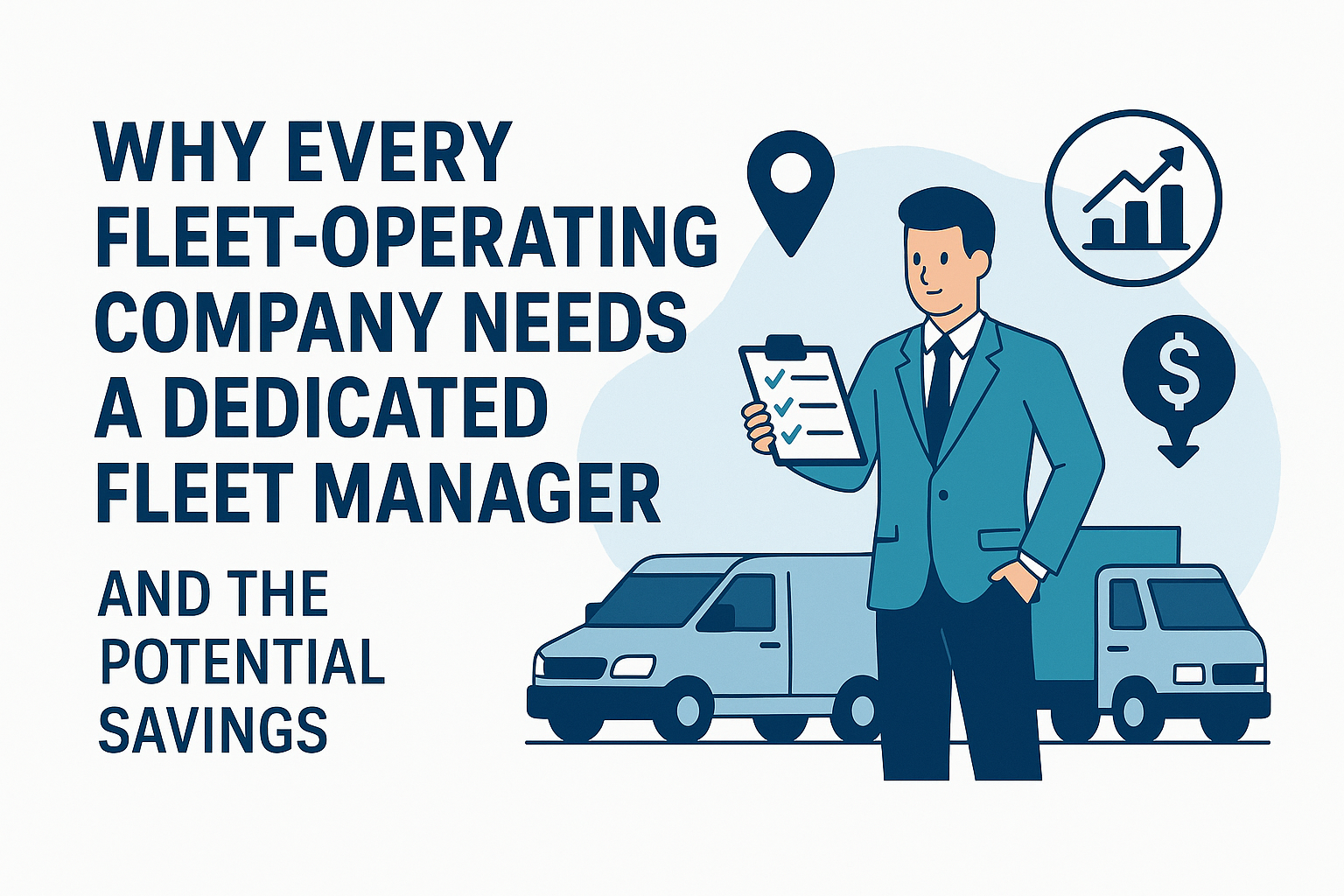Why Every Fleet-Operating Company Needs a Dedicated Fleet Manager
Operating a fleet of vehicles—whether it’s five vans or 500 trucks—requires more than just maintenance schedules and fuel receipts. It demands strategy, oversight, and foresight. Yet, many companies overlook one critical role that ties all of this together: the fleet manager
Whether in-house or outsourced, having a dedicated fleet manager can dramatically reduce costs, improve safety, and enhance operational efficiency.
What Does a Fleet Manager Actually Do?
A fleet manager is responsible for the overall health, safety, and performance of your fleet. Their responsibilities include:
Monitoring vehicle maintenance and repairs
Tracking fuel usage and reducing consumption
Ensuring DOT compliance and managing inspection schedules
Implementing driver training and safety programs
Analyzing telematics data for optimization opportunities
Reducing downtime and increasing vehicle utilization
Managing vendor relationships and procurement
It’s more than just keeping trucks on the road—it’s about keeping costs down and productivity up.
The Financial Impact: Real Cost Savings
Companies that utilize a professional fleet manager typically see savings in areas such as:
Fuel Efficiency: A telematics-driven fuel program can reduce fuel spend by up to 15–20%.
Maintenance Costs: Proactive maintenance schedules prevent breakdowns, reducing repair costs by up to 30%.
Downtime: A vehicle off the road costs more than just a repair bill—it costs revenue. A fleet manager reduces downtime by ensuring preventative maintenance and dispatch efficiency.
Insurance Premiums: Implementing a safety program and reducing accidents can lower your fleet’s insurance rates over time.
Asset Lifecycle Management: Replacing or disposing of vehicles at the right time can save thousands per vehicle over its lifecycle.
Safety Is Profit
Fleet managers play a major role in driver behavior and road safety. Telematics solutions, such as those provided through platforms like Geotab, offer real-time feedback and long-term trends. With this data, fleet managers can:
Coach drivers in real time
Identify high-risk behavior before it causes an accident
Reduce liability and protect brand reputation
Every avoided accident is not just a life saved—it’s potentially tens of thousands of dollars kept in your pocket.
